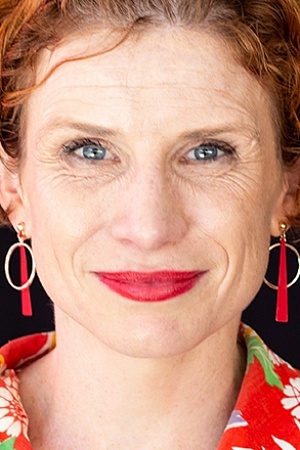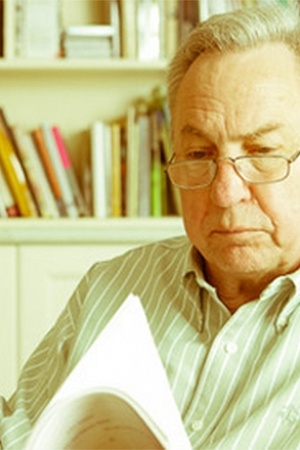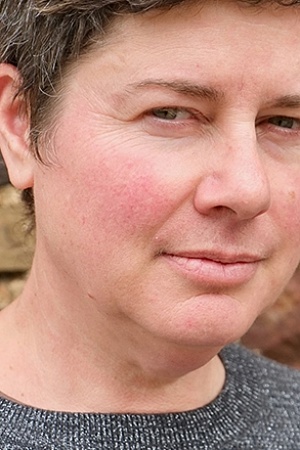An interview with Christos Tsiolkas
Christos Tsiolkas, author of Loaded, is a 29-year-old gay, Greek-Australian who lives in Melbourne. His essays, journalism, and reviews have appeared in the gay press, ethnic press, student, and left-wing journals.
NR: Tell me about Loaded’s epigram.
The immigrant child has the advantage or the burden of knowing what other children may more easily forget: a child, any child, necessarily lives in his own time, his own room. The child cannot have a life identical with that of his mother or father. For the immigrant child this knowledge is inescapable.
Richard Rodriguez
CT: I came across it two or three years ago, and it struck me as very succinctly identifying some of the primary issues that I’ve been dealing with in my life, in terms of understanding myself and understanding myself in relation to culture. Because what it says is a general fact for all of us: we all come through a splintering from a family. Maybe for a child from immigrant parents, that splintering is much more acute. It’s funny – a lot of attention thus far with Loaded is focused on its themes of sexuality. For me, much more important are the themes to do with ethnicity and the experience of migration which for a second or third generation is very, very different from the experience of the actual migrants.
NR: So how does that quote impact within your book?
CT: I hope that what I’ve been able to express in Loaded is how that experience of dislocation has, I think, become even more acute in contemporary world, where stimuli are so fast. There are so many pressures now about what identity means and how you express identity, that that fracturing from families is accelerated, as far as I can see. So for someone like Ari, the main character in the book, it’s not only a question of feeling separate from his parents’ experience of what being Greek means, but also his peers’ experience of being Greek or Australian or gay or young or urban or whatever.
NR: All of those conflicts find expression in Loaded…
CT: Yeah … It seems to me that in Australian literature there’s been, for a long time, a kind of monolithic expression of what it means to be Australian. It looks towards England and then, maybe over the last 15 to 20 years, towards America. Ari is homosexual, he’s Greek-Australian, but I think the question that is affecting him affects the majority of Australians, because it seems to me that we are a culture that is very much trying to identify what it means to be Australian. That’s reflected, I think, in our politics, it’s reflected in our artistic expression, you can see it reflected generally in academic debates, within journalism. But at the same time, I think there’s a strong current of racism in this country which tries to create a homogeneous picture of what it means to be Australian, and the politics that I have as a writer come from, I guess, within that fracture.
NR: For you, fiction is an overtly political act?
CT: I’ve never been someone who believed in art for art’s sake. Just personally, I couldn’t do that. I have to have some kind of drive to express something and I feel bound up in my world, I feel bound up in my society and I need to address it, and though I know it’s very difficult now, in some ways it’s almost impossible to come up with answers, I think artists should be asking questions. For a long time my (non-fiction) writing has been about what it means to be Australian, because there is no easy answer to that. With fiction, politics becomes a little bit more unclear. What I was attempting to do was communicate forms of experience, forms of emotion, and almost a spiritual landscape, through fiction. When I first started writing Loaded it was in early 1993, and part of what found expression in the book was the whole collapse of communist politics, left-wing progressive politics that, in fact, hit me quite hard because it was something that had been really important to me … there’s a certain bleakness in Loaded that has to do with the collapse of those kind of politics, which were very Utopian.
NR: What do you think about the way Loaded, and by default you, is being described as nihilistic?
CT: I don’t think that I am nihilistic, I think there are areas of hope … I actually think I’m quite romantic. I sometimes think: Jesus, I was born in the wrong decade by far. Because the forms of communities that I want to see, the kind of life that I want to see, the kind of life that I think is better for the human spirit, and. the fact that lean use words like spirit, make me think that I don’t belong to this age.
NR: You’re not sounding much like a ‘dirty realist’ – which of course is another tag you’ve been given …
CT: The dirty realist thing is a media creation. I think if there’s any common identification with any of these writers, it’s that maybe we want to talk about a contemporary experience and a contemporary local experience in Australia, and maybe that’s why it’s been easy for people to group us together. But, I mean, we’ve come from very diverse sources.
NR: Can Loaded even be classified as realism? Actually, that’s two questions. Firstly, is it realism as a style, and secondly, well, can you take that many drugs and have that many fucks in one night and still walk home? I mean, I’d be throwing up by 9 o’clock.
CT: I see it more as hyperrealism. It’s not straight realism. I wanted to write within some of the stylistic parameters of what’s called realism – setting it within a twenty-four-hour frame, writing in the present tense. But because I also wanted to express so many ideas and thoughts within it, at times I found myself breaking through the boundaries of what realist writing is meant to be. To me the ethnography and the location of Loaded is real, but Ari’s articulation, his expression isn’t realism.
NR: The book is full of position statements – right there in your face. Why write it that way?
CT: Fiction is a lot more personal for me. If I’m going to sit down and write an essay, I tend to think through everything I’m going to write much more carefully. The thing with fiction is sometimes you’re just carried away with the writing itself. So, all that I’m talking about is in Loaded: questions of ethnicity, questions of nationalism, questions of sexuality, they are all there. I can look at it now and think it’s a bit of an imperfect work. It’s got all these positions that maybe self-implode. Maybe part of it is hysterical almost in the way it expresses itself, but fuck, I just wanted to write something passionately. That was really important to me because it’s rare to find.
NR: There’s an excruciating irony when Ari’s saying ‘fuck the world, fuck everything, I’m never going to fall in love’ then, ‘Oh my God, I think I’ve fallen in love but I can’t tell anyone, I can’t voice it’. What’s going on there?
CT: One thing is, he’s 19, so he’s a young guy in quite a difficult situation. This is specific, I think, to a lot of Greek-Australian experience. I know that’s a generalisation, but it was certainly true for me – because the communication between yourself and your parents is obstructed by things like language. My parents don’t speak very good English, so I was discovering the vocabulary for my experience, but I could not communicate to them because my Greek wasn’t good enough. So, there is a certain silence that I found I inhabited at that age, and then add to that there is the silence of sexuality itself, which is to do with all the contradictions in your head about what is happening to you. You can’t express it to your friends, you can’t express it to yourself, and that’s where I think there is that contradiction in Ari. I was quite conscious of that when I was writing about his love for George – because I think it is love that he is experiencing, but he can’t admit to that, because he thinks it will feminise him, he thinks it will force him into a position where he will be in danger, whether that danger comes from his family, whether that danger comes from his peers, or from the community. I suppose in some way it was a reaction to some of the easy positions that the gay and lesbian community can take about issues like coming out or expressing their sexuality.
NR: Ari is quite an open character – you can read him as the archetypal angry young man or a loser/dickhead.
CT: Yes, and he’s both. I didn’t want to write Ari as a sensitive new age Greek-Australian guy, I mean, I like him. I wanted to make him intelligent, but I also wanted to show that he was fucked. He was fucked up by a lot of things. Some of the positions he takes, I wouldn’t take – I want to make that disassociation between myself and him. I think some of his statements are quite racist, for example, but I stand by the validity of that character.
NR: It’s like he has his own honesty, which lies in looking directly at what he despises.
CT: Yeah. I think he is confused, but I think he is ethical. I think the thing that he hates is hypocrisy, and he finds that everywhere.
NR: And that’s you as well?
CT: That is me. The question of ethics is probably the paramount question that I’m working through at the moment, as a writer and as a political person. Because there is that post modem condition: that all systems have been exhausted, that there are no truths, there is no God, there is no such thing as the author. I can understand where those politics come from, and the history of that, but we are still humans who have to act. So how do we act, given those conditions, what do we do? Do we acquiesce? Big questions I know, but we can’t ignore them any longer.










Leave a comment
If you are an ABR subscriber, you will need to sign in to post a comment.
If you have forgotten your sign in details, or if you receive an error message when trying to submit your comment, please email your comment (and the name of the article to which it relates) to ABR Comments. We will review your comment and, subject to approval, we will post it under your name.
Please note that all comments must be approved by ABR and comply with our Terms & Conditions.